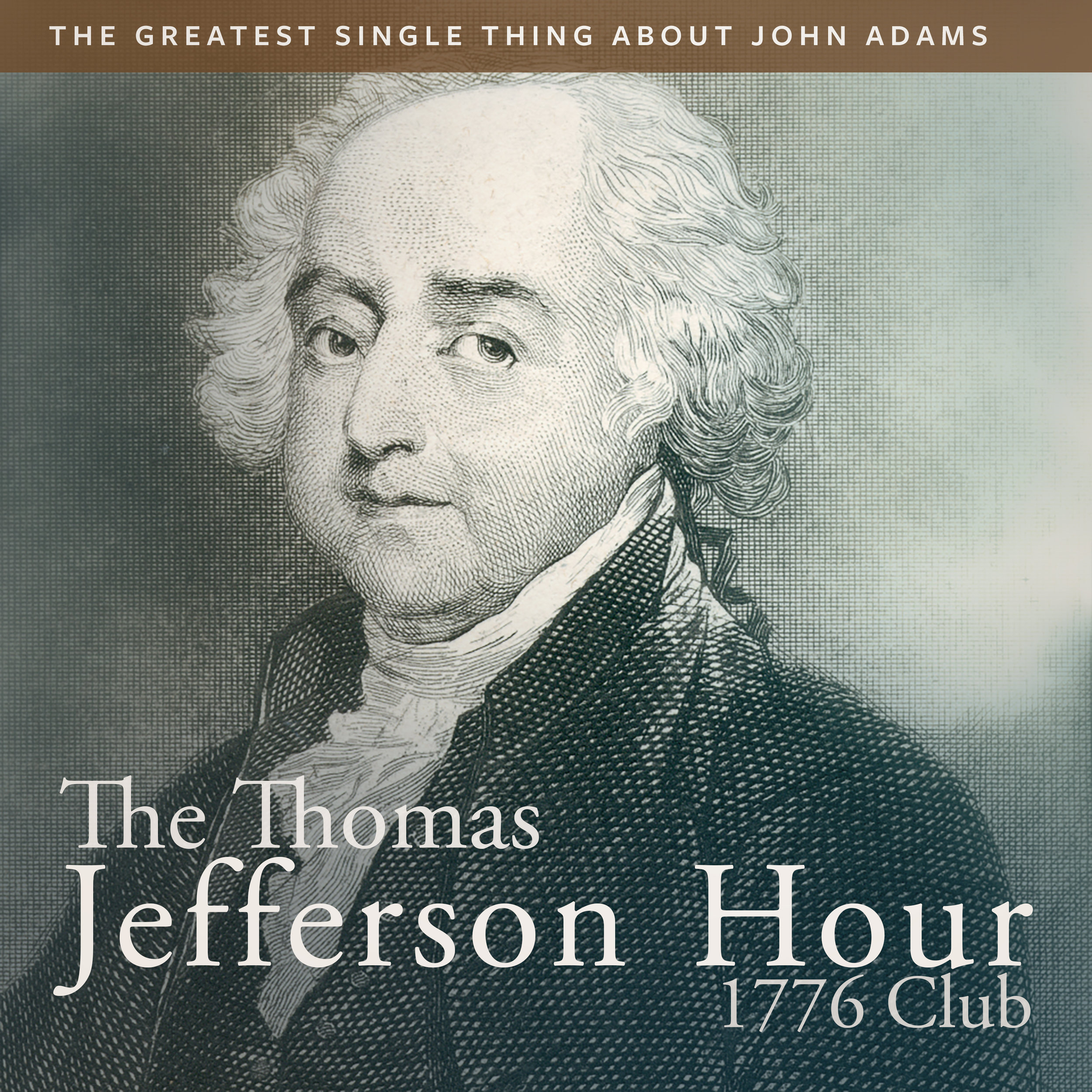“Hard to imagine Adams as a debauched man!”
"This was the greatest single thing about John Adams," Clay declares. "We should do a program about this."
He goes on:
There was war fever; it would have been a very popular thing to fight a war against France in 1798-1799. [...] Adams basically pulled the rug out from under the war fever that Hamilton was whipping into greater & greater flame — and when that happened, Hamilton lost it and wrote this anti-Adams pamphlet.
The Federalist party self-destructed. The primary Federalist was Alexander Hamilton, pretending to be a shadow president; the second Federalist was the sitting president John Adams; they could not see eye-to-eye, to put it lightly. Because of the war scare that came with the French Revolution — and the quasi-war of 1798 — and the Alien and Sedition laws and all that followed, the Federalists simply self-destructed. And so Jefferson didn't so much win the election of 1800 as the Federalists self-destructed and lost it.
Listen to this week's episode or learn more about the 1776 Club.
Further Reading
Clay & David recommend several books throughout today's 1776 Club broadcast. Clay notes that author "[Joseph] Ellis, at his prime, was maybe the premier historian of the early national period of the United States." Clay speaks highly not only of Ellis' Jefferson biography, but also his biographies of Washington and Adams. However, Clay suggests that if you want to learn more about the early days of Jefferson's presidency, you should reach for the fourth volume of Dumas Malone's Jefferson and His Time: First Term. "The first hundred days are very interestingly exact."
Dumas Malone: Jefferson the President: First Term, 1801-1805
Joseph Ellis: American Sphinx: The Character of Thomas Jefferson
Joseph Ellis: Passionate Sage: The Character and Legacy of John Adams
Joseph Ellis: His Excellency: George Washington
Jon Meacham: Thomas Jefferson: The Art of Power
Charles Slack: Liberty's First Crisis: Adams, Jefferson, and the Misfits Who Saved Free Speech
More From the Thomas Jefferson Hour
The image of John Adams in the cover artwork, an engraving by Gilbert Stuart (1755-1828), appears public domain via the New York Public Library Digital Collections.


David speaks with President Jefferson about the "original argument" between Thomas Jefferson and Alexander Hamilton concerning whether or not the United States should have a national bank. Jefferson felt this was in a sense unconstitutional and Hamilton believed we needed a flexible constitution.
Clay is joined by Darren Staloff, the author of Hamilton, Adams, Jefferson: The Politics of Enlightenment and the American Founding. In this incisive book, Staloff writes that America owes its guiding political traditions to three Founding Fathers whose lives embodied the collision of European enlightenment with the founding of America.
Lindsay Chervinsky joins Clay Jenkinson this week for the first of a series of programs titled "Ten Things." The conversations center on historical figures from the founding era, and ten things you may or may not know about them.
On February 25, 2020, Clay Jenkinson appeared before a sold out crowd at the TCC Roper Performing Arts Center in Norfolk, Virginia for his new performance, “Talking out of Tights,” an evening of humor and storytelling in which Jenkinson reflects on the comedic side of a life performing as Thomas Jefferson – the surprising encounters, the wigs, the arrests (!) – all for the love of the humanities. The show was sponsored by WHRV public radio. On this week's Jefferson Hour we hear excerpts from that performance, and also answer listener questions.